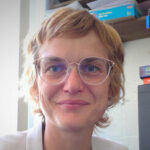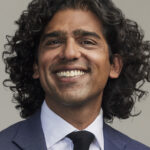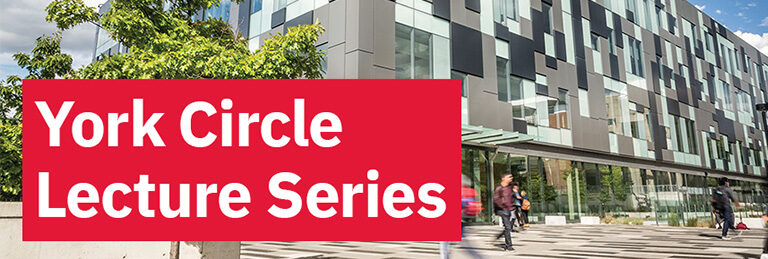In collaboration with Jennifer Steeves, the York Circle Chair and associate vice-president research, the Office of Alumni Engagement invites the community to York University’s Keele campus for a new instalment of the York Circle Lecture series.
Beginning Nov. 25 from 9 a.m. to 1 p.m. at the Life Sciences Building, prominent faculty members will delve into a diverse array of compelling subjects, reflecting the defining themes of York University.
The York Circle Lecture Series is held four times a year and is open to York’s community, including alumni and friends. Tickets are $5 and include coffee, light snacks and lunch.
Sessions will feature the guest speakers, and attendees will be asked to select one lecture from each session during registration.
10 a.m. sessions

Maxim Voronov, professor, organizational behaviour and industrial relations, Schulich School of Business, presenting “The good, the bad, and the ugly of authenticity.”
Authenticity seems ever-present in today’s society, and it has become an important research topic among organizational scholars. Much of the time, both scholars and practitioners see authenticity as unambiguously good. But we need to acknowledge the darker side of authenticity and explore its implications. The purpose of this talk is to explore “the good, the bad and the ugly” of authenticity, shifting the focus away from authenticity as an attribute of people and things and toward unpacking the process by which people and things are cast as authentic. A particular focus will be on unpacking the contribution of authenticity to both social good and social harm.

Emilie Roudier, assistant professor, School of Kinesiology & Health Science, Faculty of Health, presenting “Wildland fires: studying our blood vessels to better understand the impact on health.”
Over the past decade, the intensity and size of wildland fires have increased. Wildland fire seasons have lengthened, and these fires contribute to global air pollution. This presentation will highlight how wildland fire-related air pollution can impact our heart and blood vessels.
11:20 a.m. sessions

Usman Khan, associate professor and department Chair, Department of Civil Engineering, Lassonde School of Engineering, presenting “Harnessing the power of AI for flood forecasting.”
Floods are the most frequent weather-related natural disasters, affecting the largest number of people globally, with economic damages in excess of $900 billion (between 1994 and 2013). Globally, climate change and urbanization have led to an increase in floods in recent decades and this trend is projected to continue in the coming years, including in Canada. Despite this, Canada is the only G7 country without nationwide flood forecasting systems, which are key to saving lives and reducing the damages associated with floods. Hydroinformatics, the study of complex hydrological systems by combining water science, data science and computer science, attempts to improve traditional flood forecasting through the use of advanced techniques such as artificial intelligence (AI). This talk will outline recent research in this area and plans to build a Canada-wide, open-source, real-time, operational flood forecasting system that harnesses the power of AI to improves our ability to predict and prepare for floods.

Antony Chum, assistant professor, Canada Research Chair, School of Kinesiology & Health Science, Faculty of Health, presenting “The impact of recreational cannabis legalization on cannabis-related acute care in Ontario.”
This presentation will discuss the effects of cannabis legalization on cannabis-related acute care (emergency department visits and hospitalizations). The research conducted discovered specific impact patterns among different demographic groups. Additionally, the talk will delve into regional disparities and analyze the policy implications arising from the legalization process.
Since 2009, York Circle has showcased the ideas and research being generated by York University’s community. Topics come from every Faculty and have included discussions around gender issues, brain function, mental health, international aid, sports injuries, financial policy and many more evolving subjects.


